
Born and bred in the hilly countryside of the Appalachian Mountains in West Virginia, William saw his grandmother preserve vegetables from her vegetable garden in Mason jars in summer so that the family could enjoy them all year long. ‘People who live in the mountains never throw anything away; this is no more than common sense. It is a philosophy that I have always lived by.’

Everything is given added value if you make your purchases with care and adopt the most sustainable approach possible.
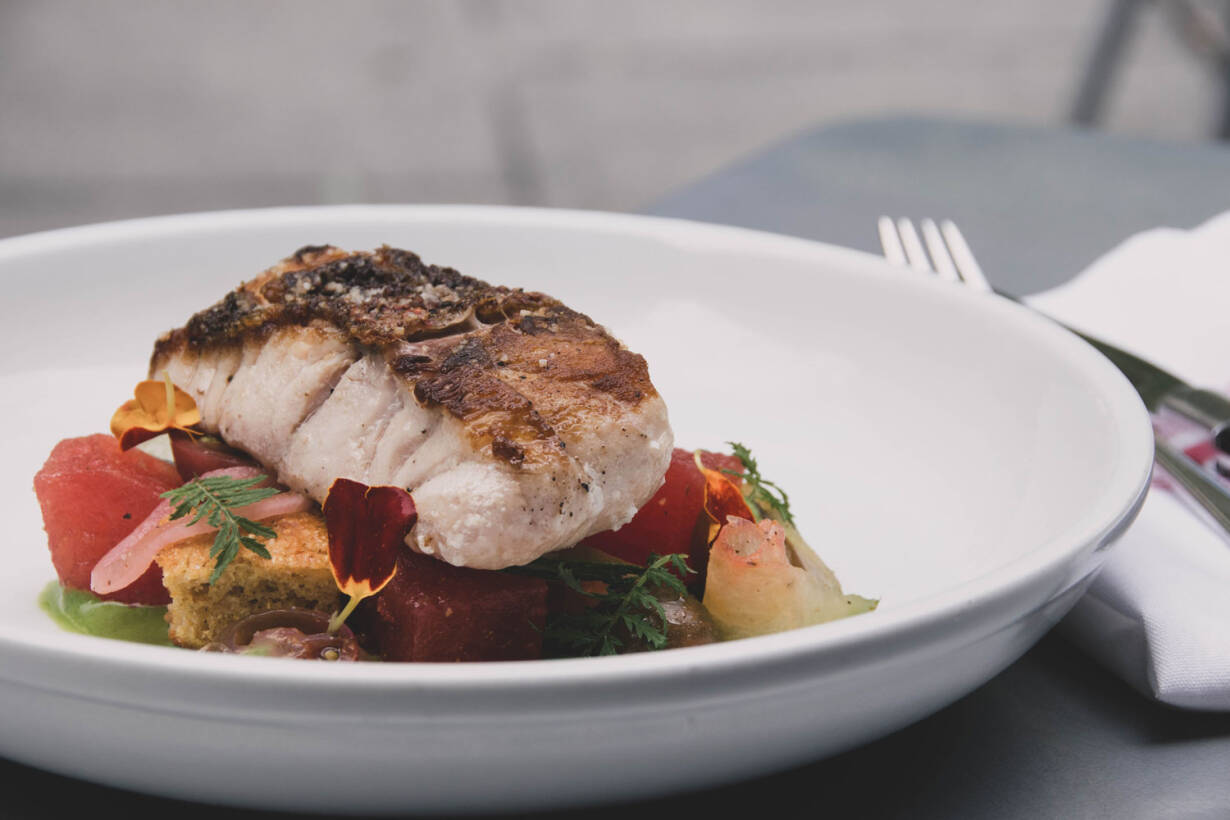
‘Many chefs think that working in a more sustainable manner is expensive, or more complex, or takes too long. But, to be honest: they don’t give a shit. Sure, I would earn more money if I bought cheaper products, but would my food be just as good? Everything is given added value if you make your purchases with care and adopt the most sustainable approach possible. I’m convinced that our guests can taste this added value.’
‘The Market Place has been open since 1979 – it’s a veritable dinosaur in the restaurant world – and we have opened another two restaurants since then: the Haymaker in Charlotte and Bille D’s Fried Chicken in Asheboro. So, I certainly think this is a good business model. And you know, I sleep pretty well at night. Not everyone can say that, I suppose.’
‘They don’t give a shit’
Chef William bought The Market Place, which had been a fine dining restaurant in downtown Asheville since 1979, and created a more low-threshold atmosphere here. The menu features dishes like heirloom tomato salad: locally grown tomatoes, velvety mozzarella and freshly made pesto. Or fried red snapper with watermelon panzanella and cornbread croutons. And to prove that vegan cuisine can also be incredibly tasty, the restaurant also offers Carolina gold rice risotto: a vegan risotto with harissa oil, cashew butter and thinly sliced fennel. Each of the components in these dishes is a genuine explosion of flavour. You can taste the love with which the ingredients have been grown, harvested and prepared.
William was one of the pioneers of the now immensely popular farm-to-table movement in Asheville. ‘I had to pull out all the stops to convince the farmers around here to supply me with their fresh products directly, instead of first selling them at the farmer’s market. Fortunately, they soon realized that this was a win-win situation: they were able to deliver quite a lot of their produce to me before the market had even opened.’
To this chef, there is no other business model imaginable. ‘Good food has its origin in good people. People you know. So you have to ask yourself this question: do I really, truly want to cook good food? If your answer is yes, you should source your products from local farmers. And try to throw away as little food as possible. Throwing away food is tantamount to throwing away hard-earned cash; it’s as simple as that.’
The pioneer of the now immensely popular farm-to-table movement
A SELECTION OF THE AWARDS RECEIVED BY WILLIAM DISSEN
2016 - present
Board of Directors – Appalachian Sustainable Agriculture Project
2013 - present
Best Chefs America
2013
12 Up & Coming Southern Chefs (Business Insider Magazine)
Rising Star Chef (Star Chef Magazine)
2012 & 2013
“Green Chef of the Year” (Fortune Magazine – Brainstorm GREEN)
Right from the very start of his career as a chef, William wanted nothing more than to open his own restaurant: a restaurant that he could build up entirely from scratch. During a visit to Asheville in 2009 he immediately fell in love with this small town in the western part of North Carolina. ‘It had a southern feel, but also exuded the atmosphere of California as well as New York. Asheville has since become a popular holiday destination and a genuine foodtopia, but this was hardly the case then. The town boasted no more than a dozen restaurants. There are currently over 600 restaurants here, with a new one opening up almost every week.’
Asheville is on its way to becoming the foodtopia of the USA
Although his grandmother and mother were capable cooks, the family often ate TV dinners. When he started job washing dishes at a restaurant, the tasted what a professional chef can do with fresh ingredients for the first time. He was sold instantly. Although he graduated from college in both French and English, he knew deep down inside that there was only one thing he truly wanted: to cook. So, he left West Virginia for the Culinary Institute of America in Hyde Park, New York. Here, his teachers reiterated time and again that every chef ought to start his or her day at the local marketplace to see what the changing seasons have to offer that morning.
How a dish washer gave his heart to the cooking profession
THE MARKETPLACE IN ASHEVILLE, NORTH CAROLINA
He was the claimed Green Chef of the Year by Fortune Magazine twice, he travels the world to promote sustainable fish and pursues a zero-waste policy at his restaurants. Chef William Dissen explains why adopting a sustainable approach to working as a chef is no more than logical to him. ‘It is simply the smartest business model.’
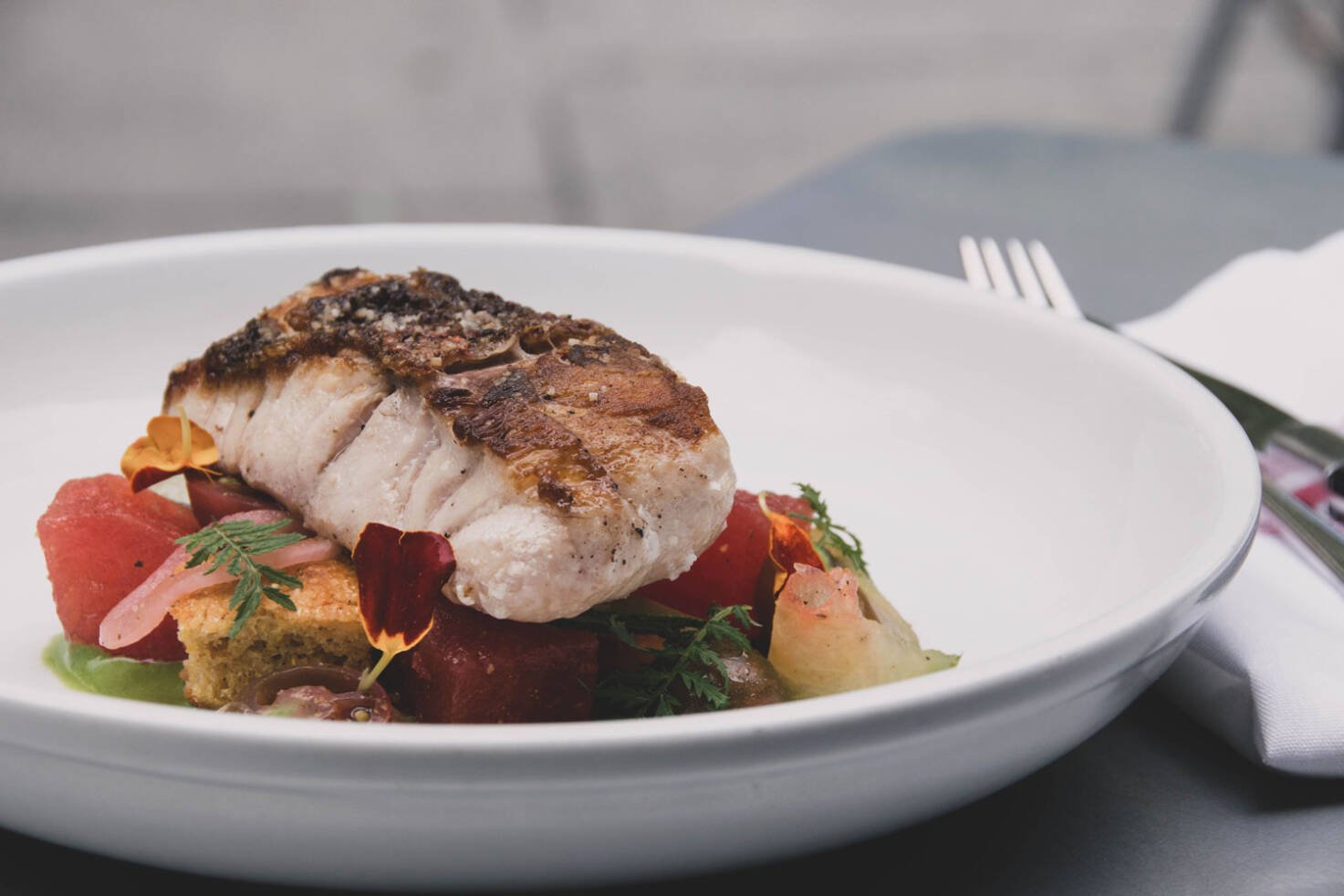
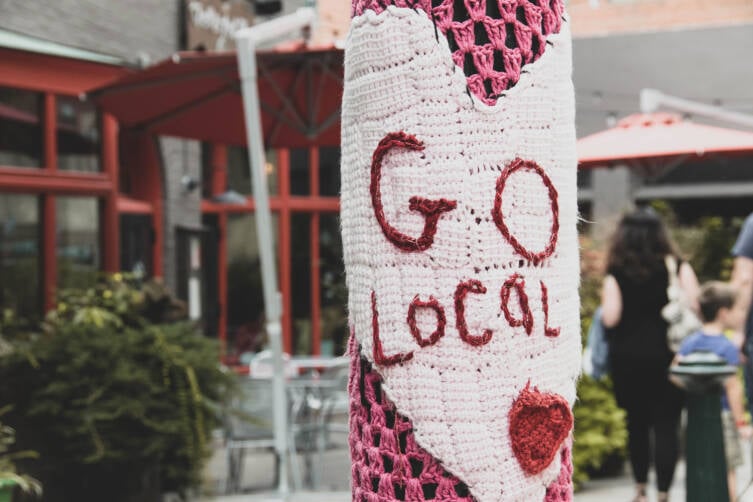
Born and bred in the hilly countryside of the Appalachian Mountains in West Virginia, William saw his grandmother preserve vegetables from her vegetable garden in Mason jars in summer so that the family could enjoy them all year long. ‘People who live in the mountains never throw anything away; this is no more than common sense. It is a philosophy that I have always lived by.’
‘Many chefs think that working in a more sustainable manner is expensive, or more complex, or takes too long. But, to be honest: they don’t give a shit. Sure, I would earn more money if I bought cheaper products, but would my food be just as good? Everything is given added value if you make your purchases with care and adopt the most sustainable approach possible. I’m convinced that our guests can taste this added value.’
‘The Market Place has been open since 1979 – it’s a veritable dinosaur in the restaurant world – and we have opened another two restaurants since then: the Haymaker in Charlotte and Bille D’s Fried Chicken in Asheboro. So, I certainly think this is a good business model. And you know, I sleep pretty well at night. Not everyone can say that, I suppose.’
‘They don’t give a shit’

Everything is given added value if you make your purchases with care and adopt the most sustainable approach possible.
Chef William bought The Market Place, which had been a fine dining restaurant in downtown Asheville since 1979, and created a more low-threshold atmosphere here. The menu features dishes like heirloom tomato salad: locally grown tomatoes, velvety mozzarella and freshly made pesto. Or fried red snapper with watermelon panzanella and cornbread croutons. And to prove that vegan cuisine can also be incredibly tasty, the restaurant also offers Carolina gold rice risotto: a vegan risotto with harissa oil, cashew butter and thinly sliced fennel. Each of the components in these dishes is a genuine explosion of flavour. You can taste the love with which the ingredients have been grown, harvested and prepared.
William was one of the pioneers of the now immensely popular farm-to-table movement in Asheville. ‘I had to pull out all the stops to convince the farmers around here to supply me with their fresh products directly, instead of first selling them at the farmer’s market. Fortunately, they soon realized that this was a win-win situation: they were able to deliver quite a lot of their produce to me before the market had even opened.’
To this chef, there is no other business model imaginable. ‘Good food has its origin in good people. People you know. So you have to ask yourself this question: do I really, truly want to cook good food? If your answer is yes, you should source your products from local farmers. And try to throw away as little food as possible. Throwing away food is tantamount to throwing away hard-earned cash; it’s as simple as that.’
The pioneer of the now immensely popular farm-to-table movement
Right from the very start of his career as a chef, William wanted nothing more than to open his own restaurant: a restaurant that he could build up entirely from scratch. During a visit to Asheville in 2009 he immediately fell in love with this small town in the western part of North Carolina. ‘It had a southern feel, but also exuded the atmosphere of California as well as New York. Asheville has since become a popular holiday destination and a genuine foodtopia, but this was hardly the case then. The town boasted no more than a dozen restaurants. There are currently over 600 restaurants here, with a new one opening up almost every week.’
Asheville is on its way to becoming the foodtopia of the USA
Although his grandmother and mother were capable cooks, the family often ate TV dinners. When he started job washing dishes at a restaurant, the tasted what a professional chef can do with fresh ingredients for the first time. He was sold instantly. Although he graduated from college in both French and English, he knew deep down inside that there was only one thing he truly wanted: to cook. So, he left West Virginia for the Culinary Institute of America in Hyde Park, New York. Here, his teachers reiterated time and again that every chef ought to start his or her day at the local marketplace to see what the changing seasons have to offer that morning.
How a dish washer gave his heart to the cooking profession

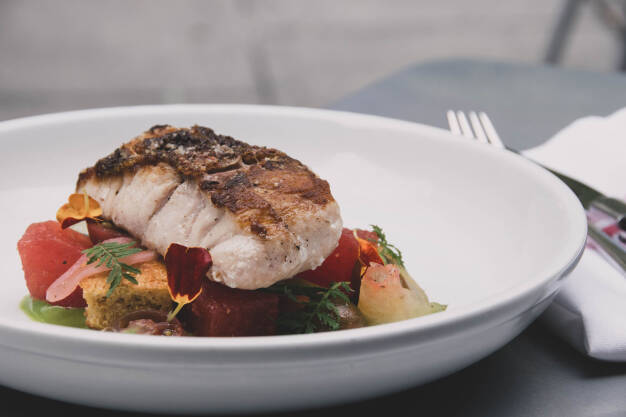
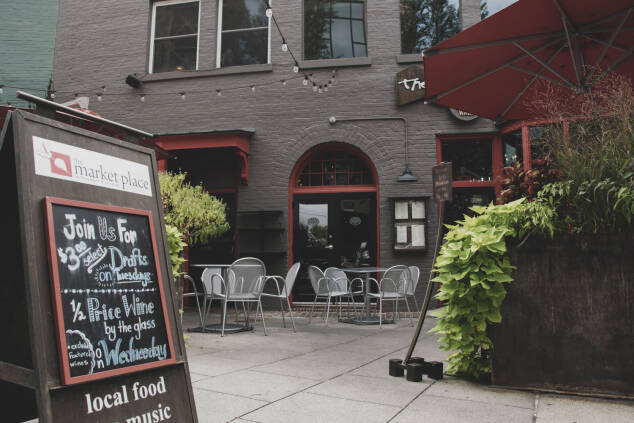
2016 - present
Board of Directors – Appalachian Sustainable Agriculture Project
2013 - present
Best Chefs America
2013
12 Up & Coming Southern Chefs (Business Insider Magazine)
Rising Star Chef (Star Chef Magazine)
2012 & 2013
“Green Chef of the Year” (Fortune Magazine – Brainstorm GREEN)
A SELECTION OF THE AWARDS RECEIVED BY WILLIAM DISSEN
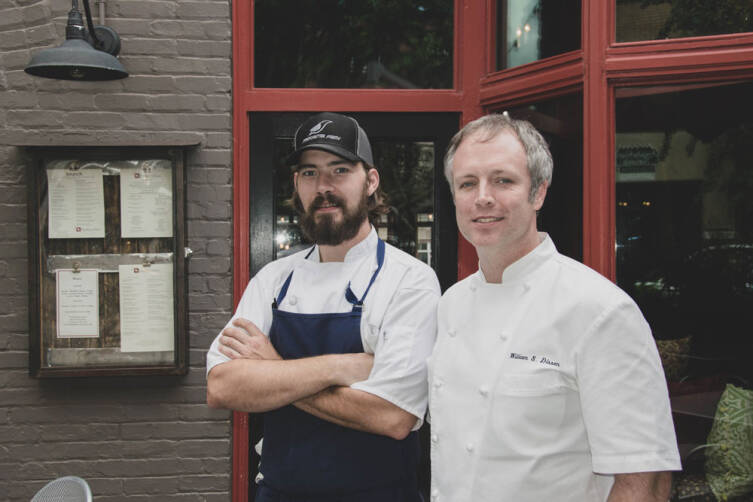
He was the claimed Green Chef of the Year by Fortune Magazine twice, he travels the world to promote sustainable fish and pursues a zero-waste policy at his restaurants. Chef William Dissen explains why adopting a sustainable approach to working as a chef is no more than logical to him. ‘It is simply the smartest business model.’
THE MARKETPLACE IN ASHEVILLE, NORTH CAROLINA




